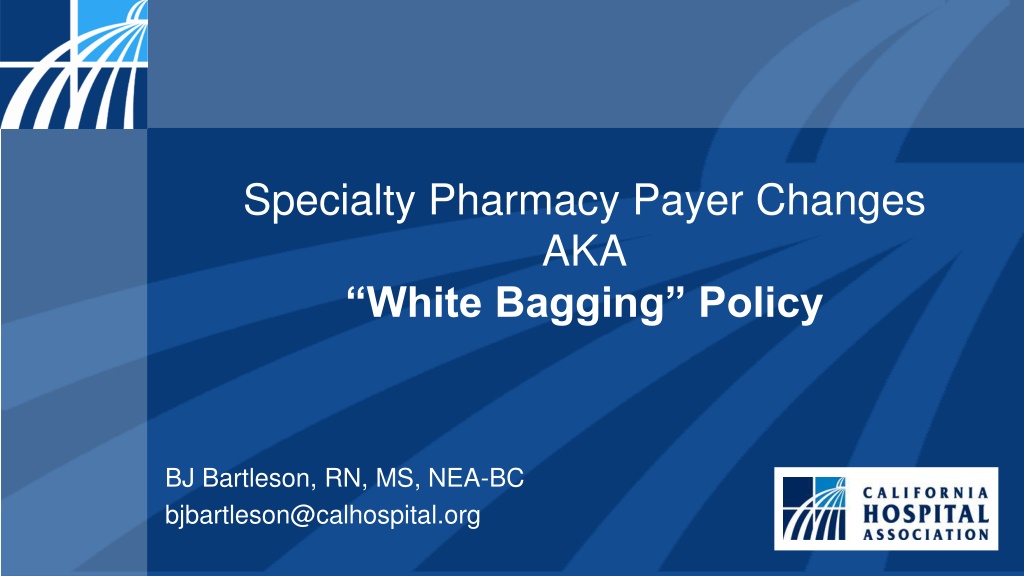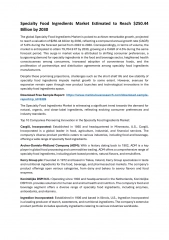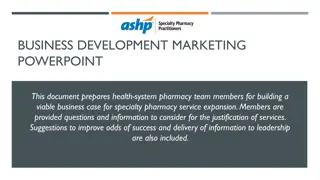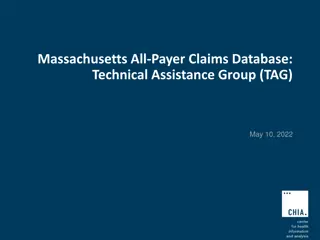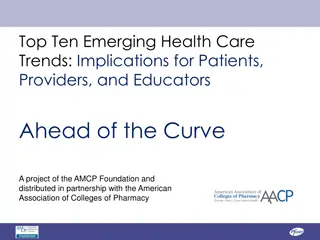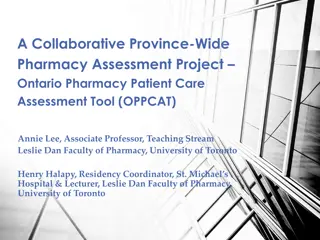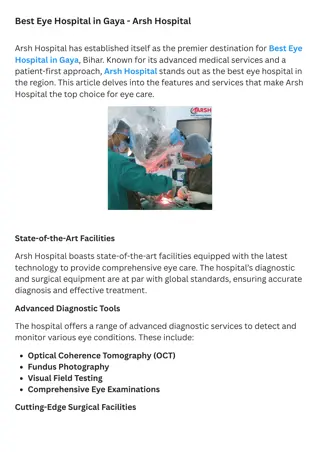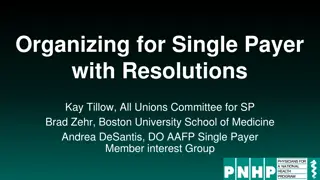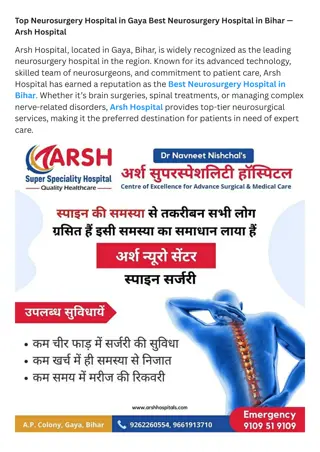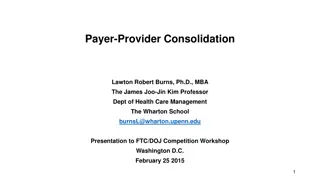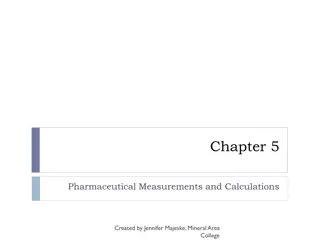Impact of Specialty Pharmacy Payer Changes on Hospital Operations
Specialty pharmacy payer changes, known as white bagging policy, have significant implications for hospitals and healthcare providers. These changes involve shifting from the traditional buy-and-bill method to obtaining medications through specialty pharmacies, leading to concerns about patient safety, treatment delays, medication integrity, and operational strain. The lack of advance notification to hospitals and non-specialty physicians adds to the challenges faced by healthcare organizations. Advocacy efforts are underway to address these issues with payers.
Download Presentation

Please find below an Image/Link to download the presentation.
The content on the website is provided AS IS for your information and personal use only. It may not be sold, licensed, or shared on other websites without obtaining consent from the author. Download presentation by click this link. If you encounter any issues during the download, it is possible that the publisher has removed the file from their server.
E N D
Presentation Transcript
Specialty Pharmacy Payer Changes AKA White Bagging Policy BJ Bartleson, RN, MS, NEA-BC bjbartleson@calhospital.org
Payer Policy Change AKA White Bagging Move from the buy and bill method, where providers buy and store these drugs for general use and bill payers for the dose used when they administer the drug to the patient Payers reimburse the third-party pharmacies, which then distribute the medications to outpatient medical providers AKA White Bagging 2
Payer Policy Change AKA White Bagging This upsets the current traditional system, potentially sacrificing patient safety and quality care to benefit profit margins These changes disregard many guardrails in the medication administration and handling process necessitating thorough scrutiny by the pharmacy community 3
Insurer Policy Changes/Notifications A State and National Issue April 1, 2020 Anthem notified physicians (not hospitals) that providers are required to obtain certain medical specialty pharmacy medications administered in the office or outpatient hospital setting through CVS Specialty for commercial HMO beginning July 1, 2020. July 1,2020 Aetna site of care management program for select oncology drugs September 2020 Anthem announced (to hospitals and physicians) as of Dec 2 it will expand to commercial PPO/EPO plans September 2020 Cigna applies to providers who bill using a hospital fee schedule rather than a physician fee schedule October 2020 United HealthCare announced that it was requiring commercial plans to source drugs through specialty pharmacy in most states beginning Dec 2, 2020. 4
CHA Concerns No notification to hospitals and non-specialty physicians (payer advance notice requirements) Patient safety and treatment delays Medication Integrity Medication Adjustments and timely delivery of medications Preparation and labeling Impact on hospital operations Strain on hospital systems Increased administrative burden Threats to 340B Drug Pricing Program for hospitals 5
CHA Advocacy June 2020 CHA was notified by members of Anthem change on July 1 June 2020 met with DMHC (Mary Watanabe) in partnership with APG and members; argued the neglect of advance notification requirement to hospitals and the patient safety and operational issues inherent in white bagging. Response: DMHC would not ask Anthem to delay or stop the role out of policy. Asked for us to report any enrollee patient care issues July/Sept CHA has internal member discussion as well as external discussions with CMA, CCHA, APG, ANOC, American Cancer Society/ California Sept/Dec 2020 CHA Agenda topics at CHA Managed Care and Medication Safety Committee January 2021 - CHA sent letter of concern to DMHC 6
Centers for Medicare & Medicaid Services Conditions of Participation 8
Additional Regulatory Conflicts Speaker last name - 9
Other Advocacy Efforts Mass Health Policy Commission 2017 9% of drugs WB/1% BB, in hospital, MD office, 26%WB, 2%BB, detailed study with recommendations now evolving to 2021 legislation 2018 NABP Survey/Study 28-31% of drugs nationally through white bagging/brown bagging and few states define the concept of white bagging terms and conditions are under payer not regulator, therefore regulatory boards must consider accountability and efforts to protect the public, the control and responsibility for the integrity and timely delivery of the medications under these practices are two issues most relevant to boards of pharmacy. There is legitimate patient protection issues when a specialty drug is distributed to an entity other than the patient. 10
State Progress 247 CMR 9.01 (4) a pharmacist shall not redispense any medication which has been previously dispensed MA State Board of Pharmacy 13:39-3.10 [i]t shall be unlawful for a pharmacist to enter into an arrangement with a health care practitioner, or any institution, facility or entity that provides health care services, for the purposes of directing or diverting patients to or from a specified pharmacy or restraining in any way a patient s freedom of choice to select a pharmacy NJ HB 233 Pharmacy Anti-Steering and Transparency Act 26-4-119 prohibits pharmacies from presenting (or PBM from paying) claims for reimbursement that were received pursuant to a referral from an affiliated pharmacy benefit manager (PBM) GA OAC 4729-9-04 No drugs that has been dispensed and has left the physical premises of the terminal distributor shall be dispensed or personally furnished OH 11
Recent Advocacy 2/4/21 AHA Letter to CMS The practice should only be permissible in instances where the provider and health plan agree through their standard negotiations that such arrangements are in the best interest of the patient providers must be joint partners, and safety cannot be compromised providers should not be required to accept these arrangements when they are unilaterally forced upon them by payers. Providers should be permitted to decline any such arrangements based on quality-of-care concerns
Options for White Bagging Policy Is this a public safety, consumer protection issue? Is white bagging in conflict with our present state pharmacy regulations? If so why; if not, why not? Can the Board of Pharmacy review present state regulations against white bagging policies? Can the Board of Pharmacy suggest next steps based on the information provided? 13
